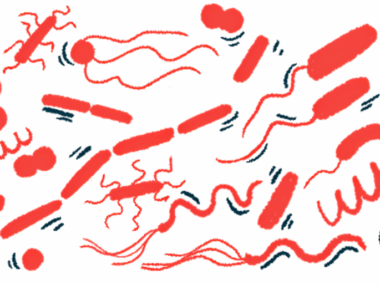CENTOGENE, Denali Partnering to Recruit LRRK2 Parkinson’s Patients for Clinical Trials
Written by |

Needed Merger
CENTOGENE and Denali Therapeutics are teaming up to identify and recruit Parkinson’s disease patients who carry mutations in the LRRK2 gene for future clinical trials, the companies announced.
CENTOGENE will carry out a targeted global recruitment campaign to identify and characterize Parkinson’s patients with LRRK2 mutations and sequence the LRRK2 gene in this population, using its proprietary CentoCard, a dried blood spot collection kit.
CENTOGENE-recruited patients will participate in clinical trials supporting Denali’s LRRK2 inhibitor therapy program.
Mutations in the LRRK2 gene are one of the most commonly known genetic causes of Parkinson’s disease and usually result in the malfunctioning of lysosomes — special compartments within cells that digest and recycle different types of molecules.
Lysosomal dysfunction is involved in the formation of Lewy body protein aggregates and, therefore, neurodegeneration. LRKK2 regulates the formation and function of lysosomes, which are impaired in Parkinson’s disease and may eventually be restored by inhibiting LRRK2 activity, both in patients with a genetic LRRK2 mutation as well as in those with sporadic Parkinson’s disease.
“Our exclusive collaboration underscores CENTOGENE’s CEO and founder of CENTOGENE, said in a press release. “We believe we can contribute to Denali’s development of disease modifying medicines for patients with Parkinson’s disease. CENTOGENE will help Denali speed up the enrollment of patients in clinical studies for its LRRK2 program.”
Interested in Parkinson’s Disease research? Sign up for our forums and join the conversation!
CENTOGENE’s dried blood spot collection kit contains a validated procedure to extract high-quality DNA, enzymes, and biomarkers from patients’ blood samples. The technology has several advantages, including ease of handling — the samples are stable once they are dry and can be sent to CENTOGENE by regular mail — no sensitivity over time or to temperature, and cost-effectiveness.
This aids in the delivery of biological samples and makes genetic, enzymatic, and biomarker testing available worldwide.
After the identification of LRRK2 Parkinson’s patients, data will be sent to Denali to potentially recruit patients for its clinical trials testing LRRK2 inhibitor therapies.
Denali’s Parkinson’s pipeline includes two investigational LRRK2 inhibitors currently in the early phase of development, DNL201 and DNL151.
The company’s latest results revealed that DNL201 was safe and well-tolerated by healthy individuals in a Phase 1 clinical trial. The investigational therapy is currently being tested in a dose-escalation Phase 1 study in healthy volunteers in the Netherlands.
“Denali is the first company to conduct clinical trials with LRRK2 inhibitors for the treatment of Parkinson’s disease. This partnership with CENTOGENE is a central part of our global efforts to identify and recruit PD [Parkinson’s disease] patients with a mutation in the LRRK2 gene into our planned clinical studies,” said Carole Ho, MD, chief medical officer and head of development at Denali. “We are impressed with CENTOGENE’s approach and technology and believe that our joint efforts will accelerate the enrollment of PD patients and the completion of our clinical trials.”


